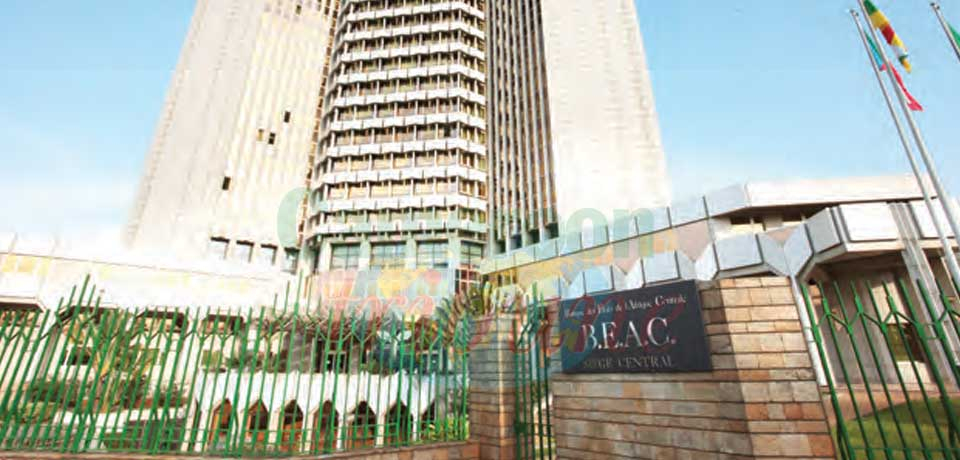Climate Change Adaptation: Developing Strategies, Policies That Transcend Sectors
- Par Kimeng Hilton
- 27 Oct 2023 16:11
- 0 Likes

The Africa Coalition for Sustainable Energy and Access, ACSEA, held a one-day training in Yaounde on October 27, 2023. On the theme, “Equipping and informing African constituencies on the status of climate change adaptation policy and practice in Cameroon
“Climate change impacts are faced by all development sectors such as agriculture, water resources and health; as well as being a humanitarian problem. Climate change cannot be addressed in one sector. If climate change impact on health is tackled leaving out agriculture, people will still fall sick because of poor nutrition,” explained Eugene Nforngwa, the Director of Programmes of the Africa Coalition for Sustainable Energy and Access, ACSEA. “An approach which comprises linkages between different sectors is therefore needed,” Nforngwa suggested.
Equipping For Adaptation
He spoke in Yaounde on Friday, October 27, 2023 at the opening of a one-day workshop on “Equipping and informing African constituencies on the status of climate change adaptation policy and practice in Cameroon.” It was organised by the Africa Coalition for Sustainable Energy and Access, ACSEA. A regional network of civil society organisations, private sector actors, and research institutions working to promote clean and affordable energy solutions for sustainable development in Africa.
Relevant Ministries, Stakeholders
“The aim of the training was to encourage participants to understand the climate change dimension in their work and to integrate it in developing policies in their different sectors… Unlike in the past when we only had participants from the civil society, this time we had people from relevant ministries – both experts and participants. These were the Ministries of Urban Affairs, Environment and Nature Protection, the World Food Programme, WFP and the National Institute of Geology and Mining,” Eugene Nforngwa disclosed.
Workshop Expectations
“We expected participants to understand and make the connection between the impacts of climate change in their sectors and the adaptation measures to take; and then return to their ministries to influence the practices. By beginning conversations to integrate climate change in the development of strategies and policies across different sectors, and also to involve actors from the civil society, government and private sector,” Eugene underscored.
Impacts Across The Board
“I talked on how climate change affects urban spaces, agriculture and water resources. Climate change affects different sectors differently. Sometimes stakeholders do not consider climate change in their planning and strategy development. For example, the impact of climate change on agriculture also affects household income, which is handled by another ministry. It has impact on health, which is handled by yet another ministry. So also does climate change impact on agriculture affects education. If farmers don’t have resources, they will not be able to send their children to school, which comes under a different ministry,” Eugene clarified.
Felt By Millions
He added; “We looked for an approach that integrates these dimensions instead of addressing climate change in silos. From our observation, this has been the case so far.” He said one of the overall objectives of ACSEA’s workshops was to raise the profile of climate change adaptation discussions in Cameroon. “We believe it is urgent and important because the impact of climate change is felt by millions of Cameroonians - from smallholder farmers to fisher people, little business people…. We don’t think climate change adaptation has received adequate attention from public authorities and the international community,” Eugene Nforngwa stated.
Need To Shift Focus
“There seems to be more emphasis on actions to mitigate climate change, which is good. But we believe it is more urgent to help communities already affected by climate change to cope with the impact, minimise its effects, maximise the benefits and to recover quickly. Through these processes, policy dialogues and other engagements we intend to hold with policy makers, we can arrive at a point for the national policy on climate change adaptation responds adequately to current challenges,” the Director of Programmes, Africa Coalition for Sustainable Energy and Access pointed out.
The workshop on “Equipping and informing African constituencies on the status of climate change adaptation policy and practice in Cameroon” sought to enhance the capacity of Cameroonian constituencies - comprising women, youths, faith-based organizations, farmers groups, and indigenous people in engaging with policymakers on climate change adaptation policies. By providing participants with accurate information on the state of Cameroon’s climate adaptation efforts, they can successfully push for the implementation of necessary actions and hold officials responsible for doing so.
Varied Participation
The one-day programme brought together representatives from Cameroonian constituencies, government agencies, civil society organizations, and academia to share knowledge and experiences, develop strategies for engagement, and identify opportunities for collaboration. The workshop used a variety of participatory methods, including lectures, group discussions, and case studies. Participants had the chance to learn from experts, share their experiences, and develop strategies for engagement and collaboration.
Climate Change Risks
Climate change poses significant challenges to countries across the...
Cet article complet est réservé aux abonnés
Déjà abonné ? Identifiez-vous >
Accédez en illimité à Cameroon Tribune Digital à partir de 26250 FCFA
Je M'abonne1 minute suffit pour vous abonner à Cameroon Tribune Digital !
- Votre numéro spécial cameroon-tribune en version numérique
- Des encarts
- Des appels d'offres exclusives
- D'avant-première (accès 24h avant la publication)
- Des éditions consultables sur tous supports (smartphone, tablettes, PC)














Commentaires